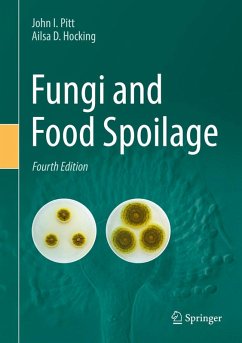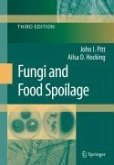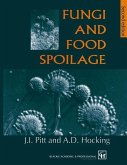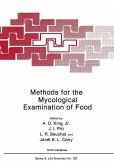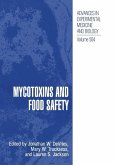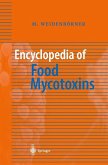The first three editions of Fungi and Food Spoilage established, then consolidated, a reputation as the leading book on foodborne fungi. It details media and methods for isolation and identification, descriptions of species, and information on their physiology, ecology and mycotoxin formation. It is an invaluable reference for food microbiologists investigating fungal food spoilage problems, both in field crops and processed foods, and the likelihood of mycotoxin production in either.
The major part of the book provides keys, descriptions and illustrations of all yeasts and filamentous fungi commonly encountered in foods. Other known characteristics of the species, including physiology and ecology are included. Chapters on the types and species of fungi likely to be found in fresh, harvested and variously processed foods are followed by a new chapter on mycotoxins, both major and minor, their sources, both fungal and food, and their implications for human health.
The Fourth Edition incorporates major differences from the Third: multiple changes in nomenclature due to changes in the International Code of Nomenclature for algae, fungi and plants; many taxonomic changes due to improvements in, and more widespread application of, molecular methods in taxonomy; the introduction of colour colony photographs where appropriate; and a new chapter on mycotoxins.
The introductory chapters of the book deal with the ecology of food spoilage, and provide an overview of how food processing, packaging and storage parameters influence fungal growth. A subsequent chapter overviews the fundamentals of naming and classifying fungi. Morphological methods and media suitable for low cost and effective isolation, enumeration and identification of foodborne fungi are provided, together with many more specialised media and techniques.
The broad and practical nature of the coverage will appeal to microbiologists, mycologists and biotechnologists in the food industry, as well scientists in academic, research and public health institutions.
Drs Pitt and Hocking worked for CSIRO Food for more than 100 years combined. Both are now retired from CSIRO: Dr Pitt continues to work part time with Microbial Screening Technologies, a biodiscovery company.
Dieser Download kann aus rechtlichen Gründen nur mit Rechnungsadresse in A, B, BG, CY, CZ, D, DK, EW, E, FIN, F, GR, HR, H, IRL, I, LT, L, LR, M, NL, PL, P, R, S, SLO, SK ausgeliefert werden.
Es gelten unsere Allgemeinen Geschäftsbedingungen: www.buecher.de/agb
Impressum
www.buecher.de ist ein Internetauftritt der buecher.de internetstores GmbH
Geschäftsführung: Monica Sawhney | Roland Kölbl | Günter Hilger
Sitz der Gesellschaft: Batheyer Straße 115 - 117, 58099 Hagen
Postanschrift: Bürgermeister-Wegele-Str. 12, 86167 Augsburg
Amtsgericht Hagen HRB 13257
Steuernummer: 321/5800/1497
USt-IdNr: DE450055826
Bitte wählen Sie Ihr Anliegen aus.
Rechnungen
Retourenschein anfordern
Bestellstatus
Storno

